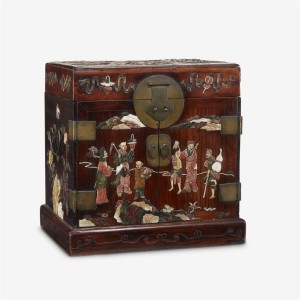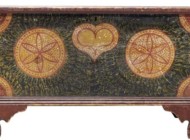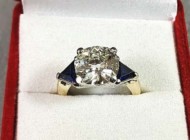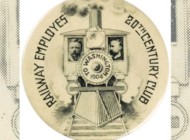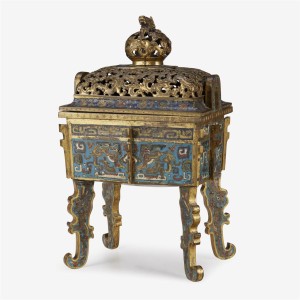
Rare Chinese cloisonné enamel square form censer and cover, fangding, jingtai six-character mark, Sixteenth/Seventeenth Century ($10/15,000).
PHILADELPHIA, PENN. — Freeman’s will kick off its fall auction season with Asian arts on September 10. Boasting an eclectic assemblage of Chinese and East Asian art ranging from China’s bronze age into the Twenty-First Century, this sale coincides with Asia Week New York, which starts on September 9. Featured in the auction are a rare imperial Chinese hunting knife with enameled gold and silver sheath of the Qianlong period, a Chinese hardstone-embellished huanghuali seal chest and a rare Chinese cloisonné enamel square form censer and cover bearing the Jingtai six-character mark.
The imperial hunting knife was crafted for use as part of the imperial courtly costume. Such knives were a symbol of Manchu ruggedness and self-reliance, added to formal regalia to set themselves apart from their Ming predecessors, who did not cut their own meat. The hunting knife embodied the independent spirit of the Manchu, a throwback to their nomadic past. Even the women of the court carried such knives. Few knives of this type have appeared at auction; in fact, Asian Arts department head Richard Cervantes remarked that that the example going up for this auction is the most formal in style he has ever seen offered. It is a particularly rare configuration among known Qianlong imperial hunting knives in that the sheath tapers to a point and the handle is composed of two materials —-vibrant blue lapis lazuli and a “hidden” section of white jade only revealed when the knife is unsheathed. It is estimated at $20/40,000.
Inlaid chests like the one being offered in this sale ($150/250,000), are also rarely seen at auction. Because of the glue used to hold the shell and hardstone embellishments to the wood, many pieces of this style lose their decoration over time. To have one largely intact after hundreds of years is extraordinary. Even more remarkable is the chest’s provenance. Formerly of the Harry Lawrence collection, this hardstone-embellished huanghuali seal chest was purchased from the Seaholm collection, and reputedly acquired from Puyi, the Xuantong emperor, while ruler of Manchukuo (circa 1935-1945). Puyi (also known as the Last Emperor of China) was believed to have often made such sales of imperial treasures to Western collectors during this time period. In need of money, the puppet emperor used his access to the court’s stores of such rare and beautiful items to as a source of income.
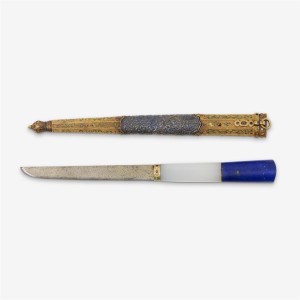
A rare imperial Chinese hunting knife with enameled gold and silver sheath, Qianlong four-character mark and of the period ($20/40,000).
Another piece featured in this auction is a complete and rare cloisonné and gilt bronze square-form censer ($10/15,000). The applied cloisonné enamel to the walls, handles and legs demonstrate the traditional Ming style, incorporating vividly colored archaistic motifs against the indispensable “Jingtailan” blue ground. On the censer’s base is seen a six-character “Da Ming Jingtai Nian Zhi” reign mark, “Made in the period of the Great Ming (Emperor) Jingtai.” Despite one minor flaw, the piece remains largely intact. This is a rare find due to the delicacy of the censer’s design, the intricacy of the enamel work and age.
Viewing is currently underway through Friday, September 9, 10 am-5 pm.
Freeman’s is at 1808 Chestnut Street. For information, www.freemansauction.com or 267-414-1211.

